Rule of Law in Southeast Asia—What It Means and How It Works in Indonesia, Thailand and Myanmar
2024.07.24
The rule of law is, in general, a concept that recognizes the superiority of the law over all other forms of power. It is widely recognized as an indispensable foundation for a just and fair society within a country, as well as the basis for an international order consisting of friendly and equal relations among nations. However, in recent years, we have witnessed a growing number of coups d'état, the collapse of democratic governments, and armed conflicts, resulting in the loss of freedom and lives of many people. Is the rule of law now in retreat, both domestically and internationally?
JICA Ogata Sadako Research Institute for Peace and Development held a seminar on the rule of law in Southeast Asia on June 21, 2024, featuring three expert panelists. The event explored how the rule of law is interpreted and perceived in Indonesia, Thailand, and Myanmar. In her introductory remarks, Miyahara Chie, director general of the JICA Ogata Research Institute, highlighted the critical importance of the rule of law amid recent global political turmoil and emphasized that the purpose of the seminar was to contextualize the concept of the rule of law based on the specific socio-political dynamics in each country and the region.
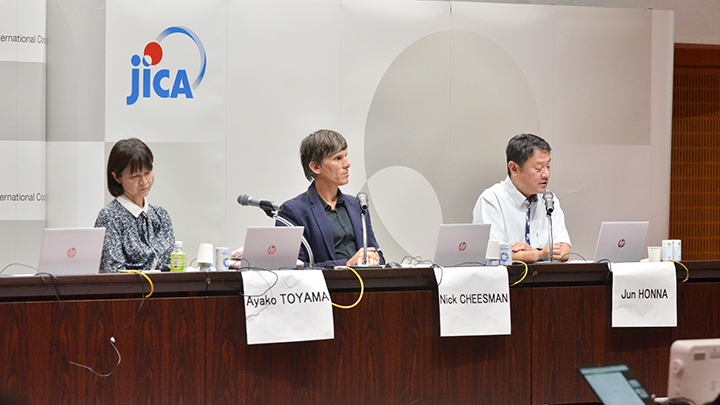
Panelists discussed the challenges of the rule of law in Indonesia, Thailand and Myanmar
Professor Nick Cheesman of the Australian National University, who specializes in Myanmar, was the first panelist to give a presentation. He argued that the current situation differs markedly from past military dictatorships—particularly in terms of law. Cheesman focused on two key areas: adherence to the constitution and use of law for political crimes.
Cheesman also discussed attempts by the National Unity Government (NUG) to establish a parallel justice system. He noted the tensions within the NUG and suggested that this may reflect broader challenges in reconciling revolutionary goals with rule-of-law principles.
Professor Toyama Ayako of the University of Tsukuba discussed the rule of law in Thailand, introducing recent controversial Constitutional Court rulings under Article 49 of the 2017 Constitution, which outlawed the exercise of “rights or liberties to overthrow the democratic regime of government with the King as Head of State.” She elaborated that Thailand’s politics have been judicialized, typically with the Constitutional Court’s interventions into the political arena.
According to Toyama, law drafters seem to fear mass demonstrations and instability, leading to the judicialization of politics while complicating protest suppression. Toyama noted that such situations in Thailand are a result of the backlash that occurred after democratization progressed. She concluded that Thailand’s issues on the rule of law are deeply interrelated with the power structures of the monarchy and military, arising from their historical background.
Professor Honna Jun of Ritsumeikan University discussed the rule of law in Indonesia, noting that while it ranks relatively well in Southeast Asia, it still faces challenges. He pointed out that Indonesia’s Rule of Law Index and the Liberal Democracy Index have seen a sharp decline during President Joko Widodo’s (Jokowi) administration.
Honna explained that Jokowi’s high popularity has allowed him to co-opt opposition parties, resulting in a supermajority in parliament and diminishing the parliament’s ability to check executive power. He argued that this executive aggrandizement has led to a shift from the rule of law to rule by law, where laws benefit the ruling elite and oligarchs while undermining civic liberties.
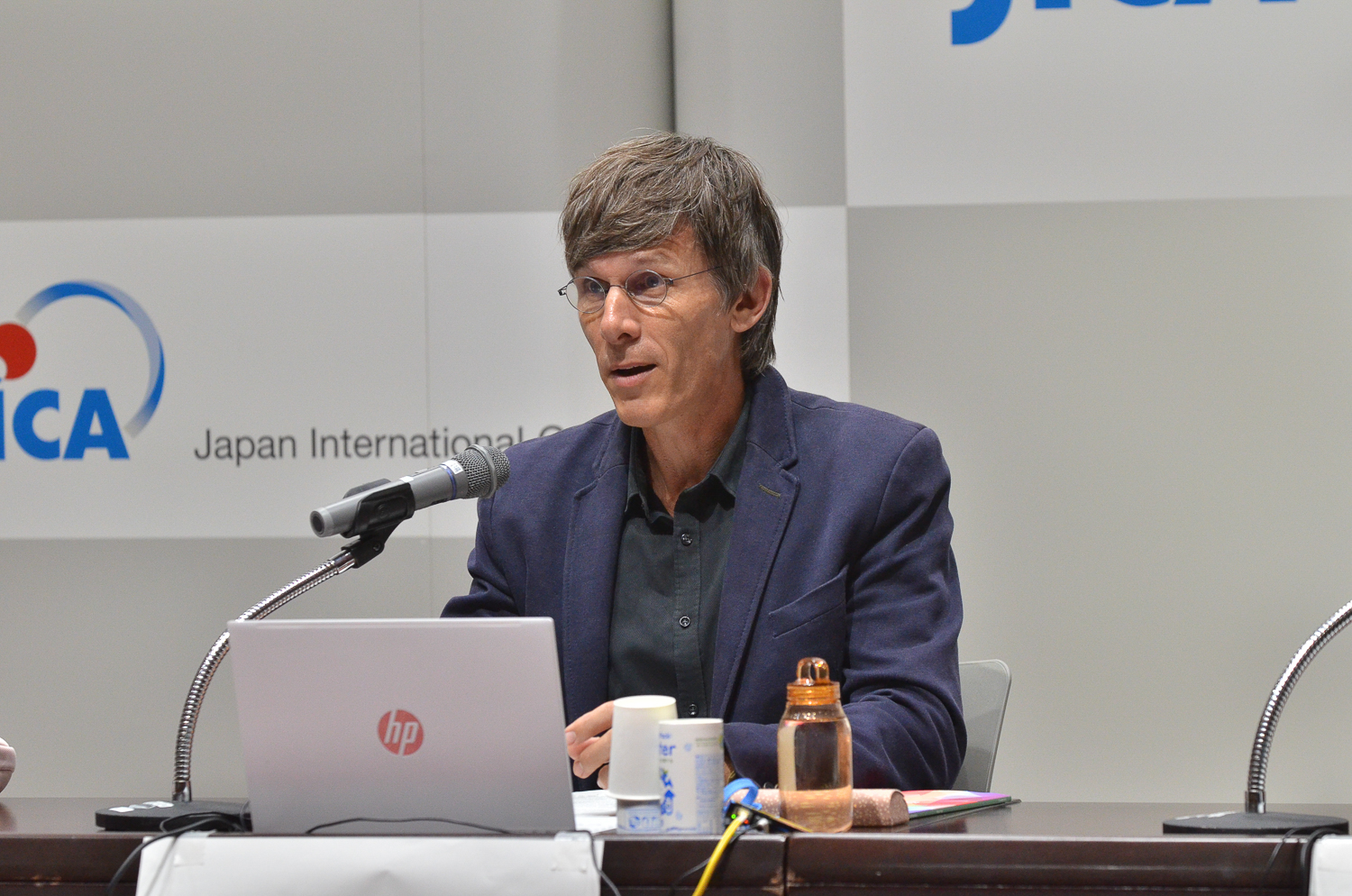
Professor Nick Cheesman from the Australian National University
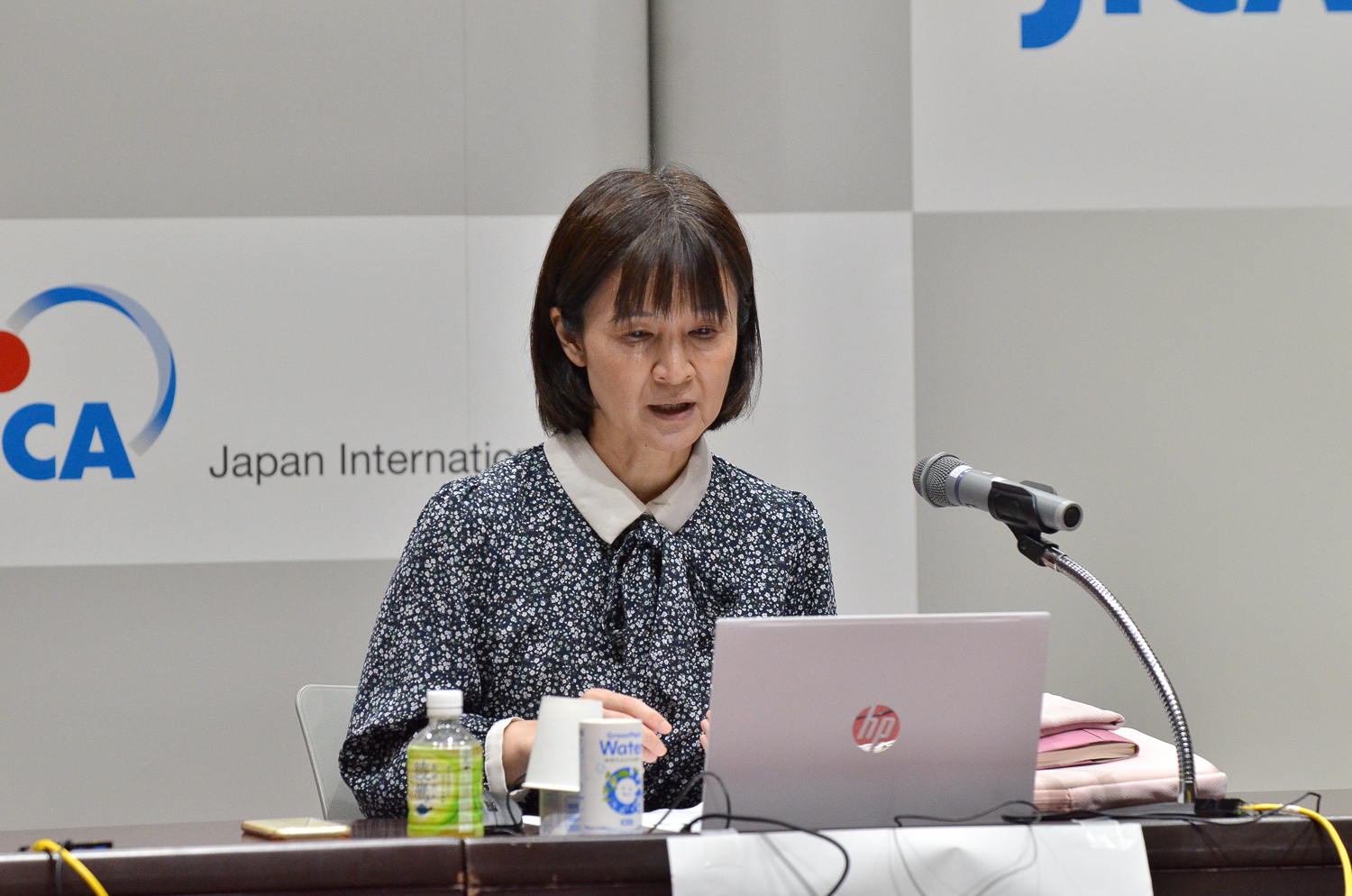
Professor Toyama Ayako of the University of Tsukuba
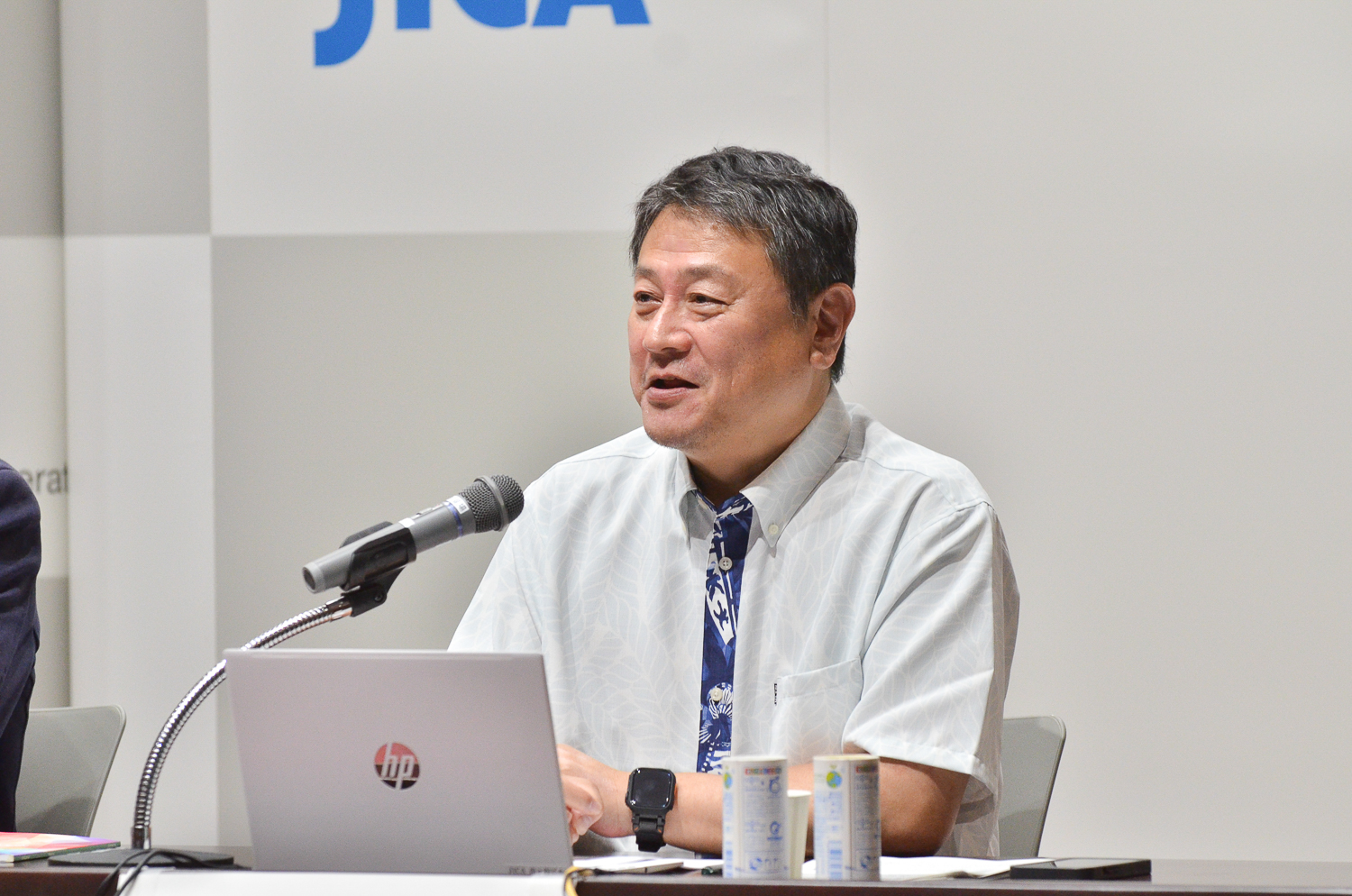
Professor Honna Jun of Ritsumeikan University
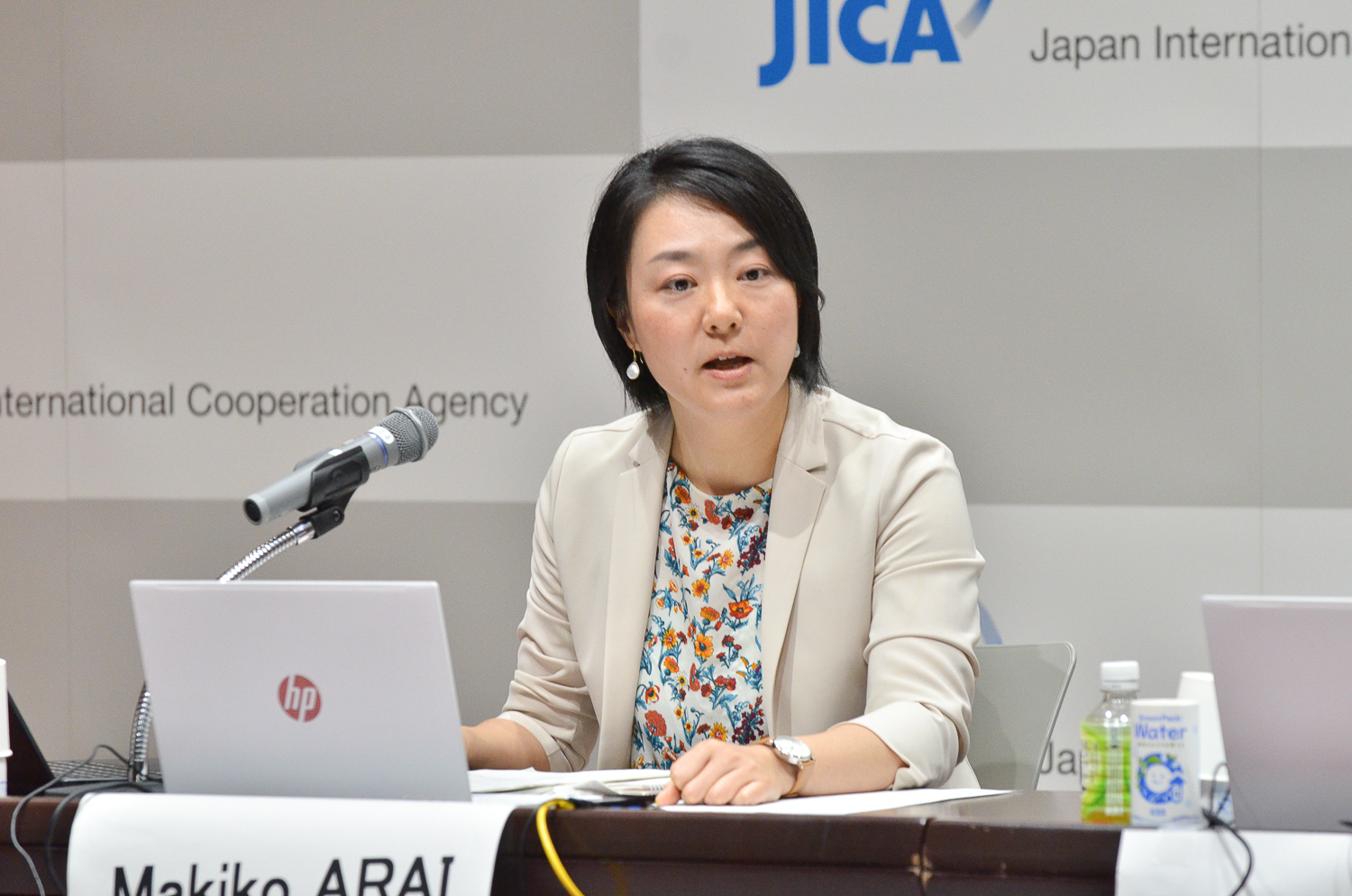
Research Fellow Arai Makiko of the JICA Ogata Research Institute
The panel discussion and Q&A that followed were moderated by Research Fellow Arai Makiko of the JICA Ogata Research Institute. Arai picked up a question from the floor and asked Toyama about the critical legal reforms needed to strengthen democratic institutions in Thailand. Toyama noted the quality of political parties but highlighted the need for reforms involving not only the legal and judicial sectors but other institutions, including the military and monarchy.
Honna was asked to elaborate on what he meant by the shift from rule of law to rule by law in Indonesia. He explained that in Indonesia, political elites tend to instrumentalize laws for their own goals, shifting from rule of law to rule by law, undermining equality and justice of the citizens, which are the essential values under the rule of law idea.
Responding to a question from the floor on initiatives to reverse the trend of using law against democracy, Cheesman emphasized the need for practical, ground-level interventions that consider current political circumstances in Myanmar. While past efforts focused on large-scale political reforms, it is crucial to support progressive forces and small experiments tailored to Myanmar’s present political environment.
The panelists answered some more questions and a lively discussion ensued. Arai wrapped up the seminar, noting that the presentations and discussion by the panelists illustrated the complexity, diversity and dynamism of the rule of law on the ground and that it was essential to bear in mind such contextualized rule-of-law realities when conducting research, implementing development projects, or exploring businesses in each country.
Note: The views expressed in this seminar are those of the panelists and do not necessarily represent the official positions of either JICA or the JICA Ogata Research Institute.

事業事前評価表(地球規模課題対応国際科学技術協力(SATREPS)).国際協力機構 地球環境部 . 防災第一チーム. 1.案件名.国 名: フィリピン共和国.

事業事前評価表(地球規模課題対応国際科学技術協力(SATREPS)).国際協力機構 地球環境部 . 防災第一チーム. 1.案件名.国 名: フィリピン共和国.

事業事前評価表(地球規模課題対応国際科学技術協力(SATREPS)).国際協力機構 地球環境部 . 防災第一チーム. 1.案件名.国 名: フィリピン共和国.

事業事前評価表(地球規模課題対応国際科学技術協力(SATREPS)).国際協力機構 地球環境部 . 防災第一チーム. 1.案件名.国 名: フィリピン共和国.

事業事前評価表(地球規模課題対応国際科学技術協力(SATREPS)).国際協力機構 地球環境部 . 防災第一チーム. 1.案件名.国 名: フィリピン共和国.
scroll